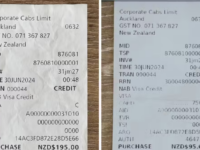The Australian Small Business and Family Enterprise Ombudsman Bruce Billson is urging small-business owners to be on high alert amidst the rising number of incidences of criminals attempting to impersonate their business or a government agency such as the Australian Taxation Office.
Billson issued his reminder to mark Scam Awareness Week, urging small-business owners to take a few extra moments to check they have appropriate safeguards in place to avoid being victimised by these scams.
“Some recent cases have left small-business owners with tax debts after they gave their myGov details to scammers who they thought were friends or people helping them,” Billson said. “Scams come in all shapes and sizes. Some are from very sophisticated hackers but others are credit card scams or fraudsters who claim to be trying to help you with your small business as they rip you off.
“I urge small and family businesses not to give anyone access to important information such as your myGov password and login, and always check agreements you sign up to and make sure you get what is promised in return,” Billson added. “Only use registered tax agents and accountants and do not give your myGov details to anyone.
“Scamwatch says three in every four scam reports involve criminals pretending to be people we should trust. If an offer looks too good to be true then it probably is. Trust your Spidey-senses,” the Ombdudsman warned. added.
“Sadly, if a criminal impersonates your business, it not only costs you and your customers money but can damage your brand and lead to a loss of consumer trust and confidence and the ability to operate. Too often, a cyber attack can be an enterprise-ending event for a small business,” Billson continued.
The Ombudsman also expressed concern about a scam involving website design or search engine optimisation.
“Scammers may sign you up for a single or monthly payment which they take from your credit card but they continue to do so even after the agreement for their service has expired,” Billson said. “In some cases they take the money but the website promised is never delivered. And businesses can face an enormous effort trying to exit these arrangements after realising they have been duped.”
“My rule of thumb is to spend one hour for every $1000 you are likely to spend checking out that it is legit, that the business you intended dealing with is real and to make sure it can deliver what is being promised. These businesses either don’t have business addresses or impersonate legitimate other businesses for cover, and if they use an ABN it often belongs to a similarly named legitimate business.”
Billson reminded small businesses to check the credentials of these types of suppliers such as their ABN and business name and if they don’t match or something doesn’t appear right, investigate further.
Small businesses who are concerned they might be the victim of a scam should contact the new National Anti-Scam Centre’s ‘Report a Scam’ page on their website www.scamwatch.gov.au/report-a-scam or report to the ASBFEO at www.asbfeo.gov.au.















